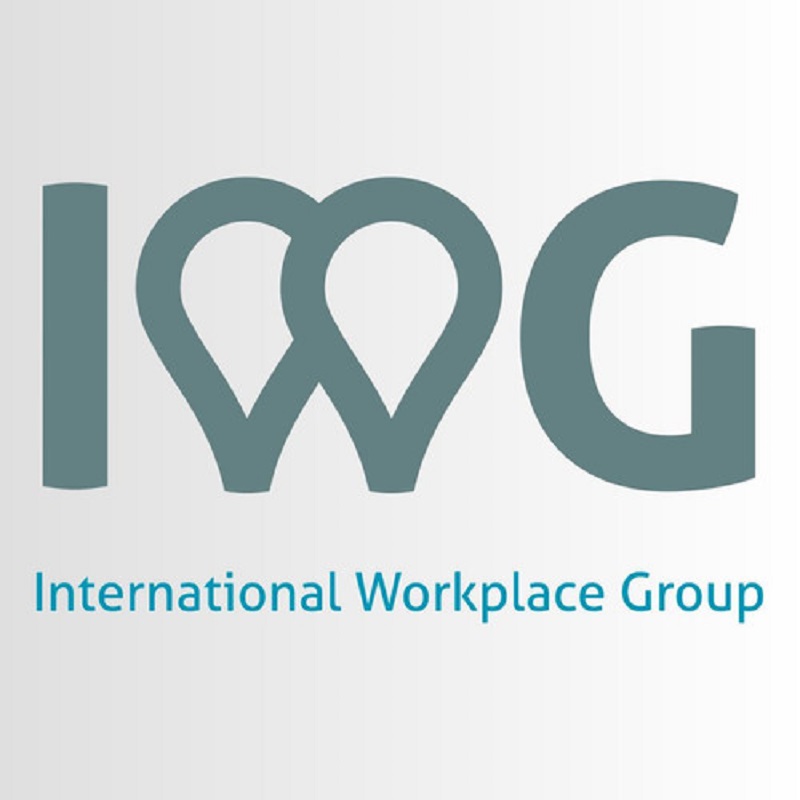Brands/Products
200 Quickteller Customers to Win N2m in Five Days

By Aduragbemi Omiyale
Plans have been concluded to reward at least 200 Quickteller customers over the next five days with N10,000 each, the company has disclosed.
According to a statement from the leading consumer digital payments platform, the lucky customers will receive the cash reward in their eCash account on the Quickteller app.
It was gathered that 20 customers would be rewarded daily by each influencer for each of the five days of the reward programme.
The promo, which is open to both existing and potential Quickteller users, is a reflection of the lifestyle payment brand’s commitment to not only providing convenient payment options for users but enriching the lives of its loyal customers.
To qualify, users need to download the Quickteller app and include the referral code of their favourite brand influencer, Destiny Etiko’s referral code is DramaDoll, while the referral code for Toyin Abraham is ToyinTitans.
Thereafter, they would be required to perform at least one transaction on Quickteller and comment on the word Done under the Quickteller Christmas Promo post on the pages of the newly signed Quickteller brand influencers, Toyin Abraham and Destiny Etiko.
The Group Head of Growth Marketing for the Merchants & Ecosystem Department at Interswitch Group, Mr Olawale Akanbi, while commenting on the campaign, noted that Quickteller remains a supporter of the lifestyle needs of its customers, rewarding them while they conduct their day-to-day transactions on the Quickteller app, encouraging users to take advantage of the reward programme for those five days that it will be running.
“In the spirit of giving, which characterizes the holiday season, Quickteller will be rewarding five lucky customers, both new and existing customers. As a payments channel that makes everyday transaction activities convenient and seamless, we are also aware of the need to give back and show appreciation to our loyal customers.
“The next five days will see 200 people get rewarded, and I’d like to encourage existing users and prospective customers to take advantage of this holiday promo by performing at least one transaction on the Quickteller app and going to the social pages of our brand influencers to engage with the Quickteller posts,” he said.
Brands/Products
IWG Plans Flexible Working Spaces in Lagos Amid Growing Demand

By Adedapo Adesanya
International Workplace Group (IWG), the world’s largest provider of hybrid working solutions with notable brands like Spaces and Regus, is opening two state-of-the-art flexible workspaces in Lagos to meet the rising demand.
The addition of IWG’s latest locations, HQ Lagos Lekki Link Bridge and Regus Lagos Mansard Place, followed the business posting its highest-ever revenue, cashflow and earnings growth in its history and achieving rapid network growth, signing 465 new locations in the first half of 2024 alone.
According to the company, the adoption of hybrid working rapidly is accelerating across Nigeria and these new locations in Lagos are part of the drive by IWG to meet the sharply rising demand for top-class flexible working space in the area.
Its unique offering will enable local people to experience living in a “15-minute” city, allowing workers to work close to their homes without commuting far from where they live.
The HQ workspace is set to open in Lekki in March 2025 and will It will be located on the 2nd and 3rd floor while the Regus location at Mansard Place (situated at Plot 928, Bishop Aboyade Cole Street, Victoria Island) will be on the 3rd floor of the six storey building and will open in February 2025.
The buildings will provide space for established firms and start-ups across a range of industries, while IWG’s Design Your Own Office service allows companies to tailor their space entirely to their requirements. The new locations will include facilities including private offices, meeting rooms, co-working and creative spaces.
With explosive market growth as companies of all sizes adopt hybrid working for the long-term, it is predicted that 30 per cent of all commercial real estate will be flexible workspace by 2030 and IWG believes that partners will be able to capitalise on this fast-growing sector,
The potential for further growth is exponential with an estimated 1.2 billion white collar workers globally and a total addressable market of more than £1.57 trillion. Conventional office occupancy will continue to fall as businesses require less traditional space and turn to flexible workspace instead.
Last year alone, IWG welcomed over 800 new partner locations and counts 83 per cent of Fortune 500 companies among its customer base.
Speaking on this, Mr Mark Dixon, CEO & Founder of International Workplace Group Plc, commented: “We are establishing a stronger and much-needed footprint in Nigeria with this these latest openings.
“As an important business hub Lagos is a fantastic place for us to boost our expansion plans. The need for high-quality flexible workspaces continues to soar as hybrid working becomes the new normal.
“We are very pleased to work in partnership with Sterling Bank and APD Mansard Place to develop the brand under a management agreement that will add a cutting-edge workspaces to their the buildings.
“Our openings in Lagos comes at a time when more and more companies are discovering that flexible working boosts employee happiness and satisfaction, while helping the environment. Our workplace model is also proven to increase productivity and allows for a business to scale up or down at significantly reduced costs.”
Brands/Products
Airtel Nigeria Wins Most Preferred Telecom Brand Award

By Modupe Gbadeyanka
Another award has been added to the shelves of Airtel Nigeria for the quality service it offers its numerous subscribers.
At the 14th Nigerian NewsDirect Awards held at the Lagos Oriental Hotel on Friday, December 6, 2024, the company went home with the Most Preferred and Admired Telecommunications Brand award.
The chief executive of Airtel Nigeria, Mr Dinesh Balsingh, thanked the news platform for the recognition, reiterating the dedication of the organisation towards the growth of Nigeria.
“At Airtel, we remain steadfast in our mission to enrich lives and contribute to the sustainable growth of our nation, and we are proud to receive this award as the Most Preferred and Admired Telecommunications Brand.
“This recognition reaffirms our commitment to connecting Nigerians, driving digital inclusion, and empowering communities through innovative solutions,” he said.
The ceremony, themed Achieving Economic Prosperity: The Role of Human Capacity Development, Fiscal Prudence, and Revenue Generation, celebrated outstanding contributions made by individuals and corporate organisations to national development across sectors and industries.
The chairman of Odu’a Investment Limited, Mr Bimbo Ashiru, thanked all participating entities for their “continuous contributions and support to the nation’s growth.”
“You have demonstrated excellence and have significantly contributed to Nigeria’s progress and we believe this platform will continue to highlight and encourage best practices across industries,” he stated.
The event attracted several persons, including the chairman of the Lagos State Internal Revenue Service (LIRS), Mr Ayodele Subair; and the Registrar-General of the Corporate Affairs Commission (CAC), Mr Hussaini Ishaq Magaji; among others.
Brands/Products
Rite Foods Backs 2024 Ibadan Chops, Chills Festival

By Modupe Gbadeyanka
The second edition of the Ibadan Chops and Chills Festival held on December 1, 2024, received the backing of Rite Foods Limited.
It was a platform for young entrepreneurs, food vendors, and entertainers to showcase their talents and promote the rich cultural heritage of Oyo State in particular, and Nigeria in general.
Rite Foods used the event to foster growth and innovation among enterprising youths in society in demonstration of its commitment to youth empowerment and community engagement.
The Corporate Communications Manager at Rite Foods, Mr Innocent Adulugba, said, “As a manufacturing company driven by innovation, Rite Foods Limited believes in the power of young people and the importance of providing platforms that enable them to showcase their skills and talents.”
“The Ibadan Chops and Chills Festival aligns with our mission to inspire, support, and add value to talents and entrepreneurs across Nigeria,” he added.
“Rite Foods Limited recognizes the Ibadan Chops and Chills Festival as a platform for growth and that is why the company is here today to leverage support so the participating food exhibitors can benefit via joint marketing efforts, co-promotions, and expanded distribution channels under one roof,” Mr Adulugba stated.
“We are partnering with food vendors to offer consumers a more comprehensive and enjoyable experience, such as pairing beverages like Bigi, Sosa or Fearless with complementary food options of their choice,” he noted.
Also speaking, the convener of the programme, Ms Chinwendu Festus of Wendy’s Kitchen, said, “The first edition of Ibadan Chops and Chills was a success, which inspired us to aim higher this year.
“Our goal is to provide young people with the space to showcase their culinary talents, grow their businesses, and connect with a broader audience.”
The Commissioner for Youth and Sports, Ms Wasilat Adefemi Adegoke, stated, “This initiative is one of the best I have seen. It aligns perfectly with our administration’s goals of empowering the youth, promoting cultural heritage, and fostering talent.”
It was gathered that the festival featured cooking competitions, entertainment shows, guest tours and vendor exhibitions, which highlighted the diversity and ingenuity of participants and the diversity of food options on display.
-

 Feature/OPED5 years ago
Feature/OPED5 years agoDavos was Different this year
-
Travel/Tourism8 years ago
Lagos Seals Western Lodge Hotel In Ikorodu
-

 Showbiz2 years ago
Showbiz2 years agoEstranged Lover Releases Videos of Empress Njamah Bathing
-

 Banking6 years ago
Banking6 years agoSort Codes of GTBank Branches in Nigeria
-

 Economy2 years ago
Economy2 years agoSubsidy Removal: CNG at N130 Per Litre Cheaper Than Petrol—IPMAN
-

 Banking2 years ago
Banking2 years agoFirst Bank Announces Planned Downtime
-

 Sports2 years ago
Sports2 years agoHighest Paid Nigerian Footballer – How Much Do Nigerian Footballers Earn
-

 Technology4 years ago
Technology4 years agoHow To Link Your MTN, Airtel, Glo, 9mobile Lines to NIN














